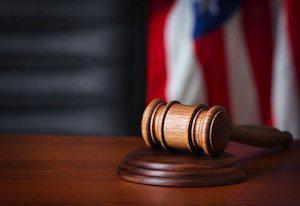 The Wisconsin Supreme Court has ruled that an insurer, responsible for specific liabilities, must share the costs and contribute to the settlement paid to victims of a gas explosion accident at a city construction site. This decision will lead to victims of the accident receiving compensation for their injuries at a faster rate.
The Wisconsin Supreme Court has ruled that an insurer, responsible for specific liabilities, must share the costs and contribute to the settlement paid to victims of a gas explosion accident at a city construction site. This decision will lead to victims of the accident receiving compensation for their injuries at a faster rate.
Explosion in Oconomowoc
The ruling stems from a 2008 explosion in Oconomowoc, Wisconsin. The contractor, Dorner Inc., was engaged in road construction and underground excavation to install new sewer lines in front of the First Baptist Church at W. Wisconsin Ave. and Worthington Street. In the course of their work, employees came across a natural gas line—one they incorrectly determined to be inactive.
As the workers attempted to move the gas pipe using a backhoe, the pipe ruptured, leaked gas for nearly an hour, and then exploded. Significant property damage and personal injury resulted: a 100-year-old church was completely destroyed, neighboring houses were damaged, and at least seven workers were injured. Moreover, all that remained of the First Baptist Church was its bell tower. Five workers and two firefighters suffered head injuries and burns.
The Supreme Court's ruling specifically deals with the insurance policies that covered Dorner, Inc. for the accident. Dorner had two liability policies in place: 1) a general commercial liability policy with Acuity Insurance (standard procedure for most businesses); and 2) a contractors' pollution liability policy with Chartis Specialty Insurance Co. Such insurance is typically bought by businesses in order to cover damages that may be caused by various pollutants and toxins, such as those encountered in construction sites.
When Dorner was sued by the victims of the accident, its primary insurer Acuity indemnified (i.e. compensated Dorner's costs for the lawsuits) when the company settled the suits. Acuity, however, argued that Chartis should also contribute to the fees and settlement owed to the victims. Acuity wanted Chartis to cover at least half of the costs and settlement. Chartis did not want to pay and claimed that because the damages were caused by an explosion rather than a pollution spill, for example, it should not have to pay.
Rulings of the Courts
The Circuit Court ruled that Chartis should pay, but the state appeals court reversed the decision. The Wisconsin Supreme Court, however, ruled unanimously in Acuity Insurance Co v. Chartis Specialty Insurance Co., 2015 Wis. 28 (March 17, 2015) that the natural gas leak itself qualified as a “pollution condition” that caused bodily injury and property damage. This is because in the insurance policy itself, a pollution condition is defined as the “release of any solid liquid, gaseous … contaminant.” To the average person, a natural gas leak would easily fit under such a definition, and the Court agreed.
Furthermore, the gas leak was the reason for the explosion and fire, which in turn caused all of the damage. Thus, it is sufficient enough to establish the gas leak caused the injuries and damage. As such, even though Acuity was also providing insurance coverage, so the Court ruled that Chartis should as well.
The end result for the average Wisconsin citizen is simple. If a citizen is hurt in such an accident and the company has pollution coverage, he or she will receive compensation for their injuries in a more timely and immediate fashion.
The Help of an Attorney May be Necessary
Of course, in order to recover compensation, it may be necessary to retain an experienced attorney. If you have been involved in a construction site accident or suffered burns, head injuries, or related personal injury, please contact one of our experienced Appleton personal injury attorneys or Green Bay personal injury attorneys who can help you recover the maximum amount for your injuries and property damage. With offices located in Appleton, Green Bay, and Oshkosh, we can help you recover the maximum amount for your injuries.


